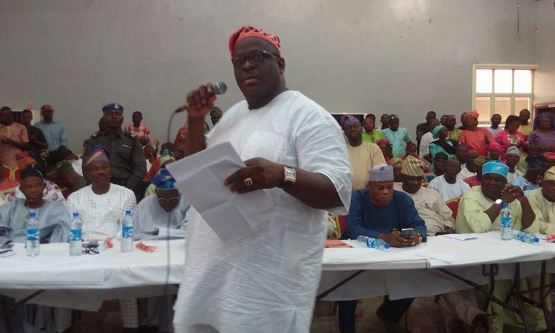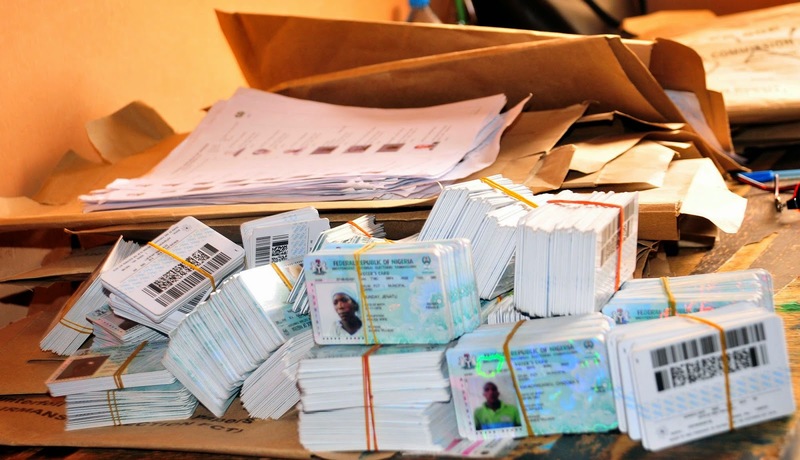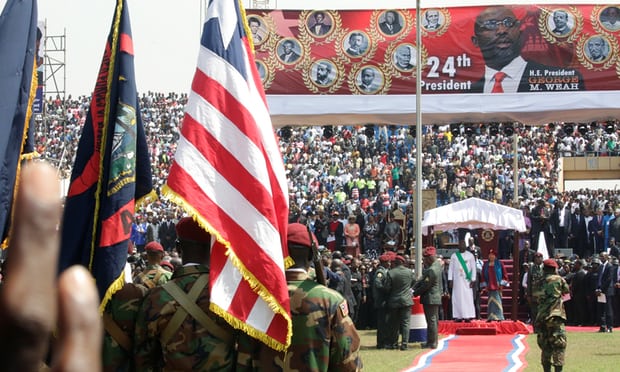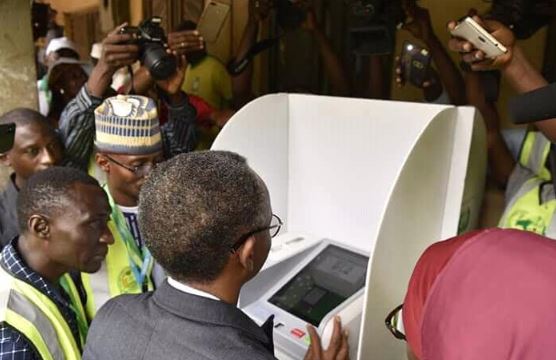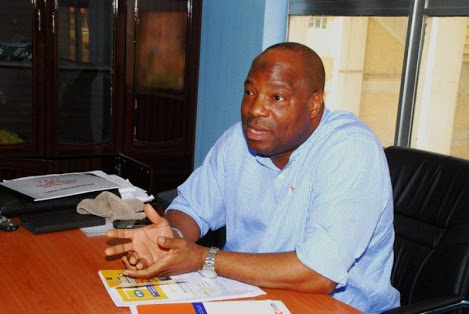The lamentations have continued as the strike of the Joint Health Sector Union (JOHESU) entered its third week. From Lagos to Abuja to Kaduna, doctors have been struggling to cope without the assistance of health workers. This no doubt has worsened the condition of patients who protested inadequate attention even when the health workers were on the ground. TheCable visited hospitals in different parts of the country.
Empty halls, scanty wards, locked doors, vacant offices and forlorn patients waiting to be attended to by a few helpless doctors, public health facilities in Lagos have been rendered lifeless after health workers in the state joined the ongoing nationwide strike.
JOHESU announced an indefinite strike on April 17, citing the government’s refusal to meet its demands. One of the demands is to be at par with doctors in terms of salary but the federal government said that is not practicable. On Tuesday, the union’s leadership instructed health workers in states and local governments to join the industrial action.
PATIENTS DESERT LAGOS HOSPITALS
Advertisement
When TheCable visited Alimosho General Hospital, Igando, many offices were under lock and key while a few patients waited to see doctors at the consulting room. Before the strike the place was a beehive of activities but on Friday morning, the patients were nowhere to be found. A patient, who identified himself as Segun, while waiting to see the doctors with his younger brother, said they’ve been sitting there for more than an hour unattended to.
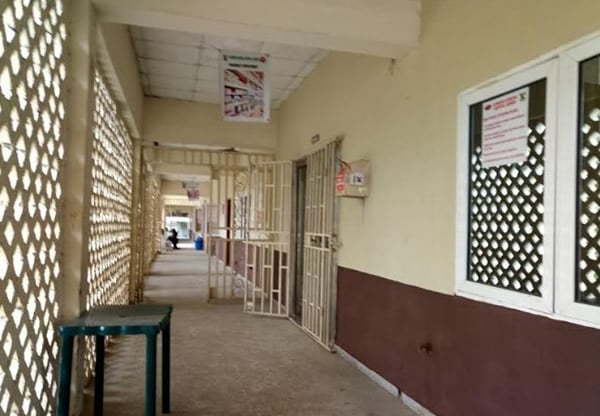
“Some people who cannot wait have even left because there are a few doctors around who are attending to all of us. People are not happy. Now, we need to get drugs and we have to go outside to look for it because the pharmacy here has been closed. That is stressful,” he said
At the community health department, the waiting hall facing building was empty. The officials only attended to some patients who came to collect their test results, but cases were not attended to, even as the female workers were busy laughing and discussing “Davido’s assurance to Chioma”.
Advertisement
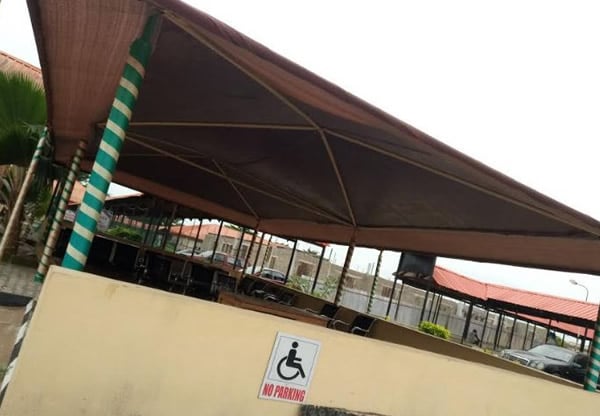
An impatient middle-aged man, who had come to collect his test result, said, “This place used to bustle with people, but look at the whole place very empty. There’s nothing you can get here right now because they won’t answer you even if they are there. Thank God I did my test before the strike. If not, it would have been tough for me. They told me five minutes ago that it was ready and I will get it in a few minutes.”
Around 4:50pm at the medical emergency section of Lagos State University Teaching Hospital (LASUTH), a woman walked out clumsily and slumped on the chairs sobbing the death of a girl whose mother had left at her sick bed in the morning and gone to work.
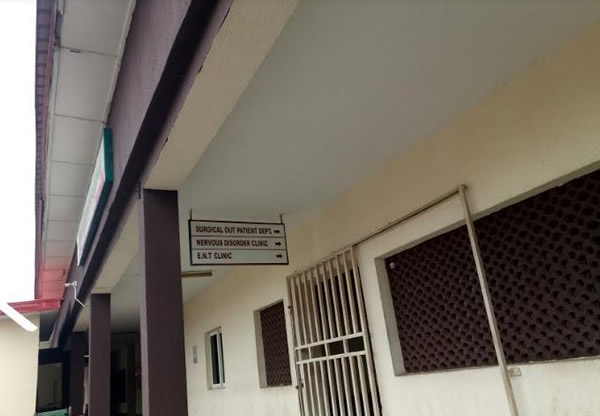
At the surgical out-patient department and other offices showed that the health officials had locked the gates to the facilities and were not available.
Fashina Ibidapo, a medical student at LASUTH, posted on his Facebook page his experience at the hospital on Friday. He wrote, “I was at the medical emergency late last night at 11:50pm because I was a patient myself. The ward was as silent as a graveyard. I met the casualty doctor. In no short time, a middle aged man brought a 36-year-old female, who was said to have been eating dinner, suddenly started convulsing, fell and became unconscious. Unfortunately, the doctor could not have managed an unconscious patient without any assistance; so, he suggested that they quickly rush to a private hospital and they told us they had checked one and were referred here.
Advertisement
“On getting to the patient in the car, alas, every requirement to pronounce someone dead was met. We had lost a mother, because JOHESU is on strike and NMA is also threatening to go on strike too.”
Another patient, Samuel Odibo, while reacting to the strike said, “It is a pity that we, as a country, still find ourselves in this mess of strikes in the health sector. There will also be an increase in the number of deaths, especially amongst the poor and also unequal access to quality medical care.’’
AT MAIDUGURI, DOCTORS ADD MORE RESPONSIBILITIES
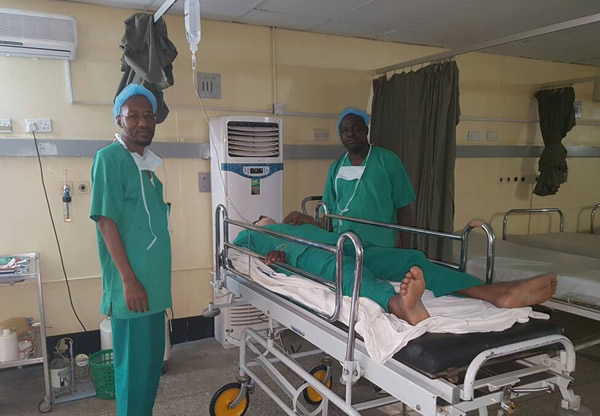
Bashir Tahir, chairman, medical advisory committee (CMAC) of the University of Maiduguri Teaching Hospital (UMTH), said the hospital is fully operational despite JOHESU strike.
Advertisement
Tahir, who spoke with TheCable, said the hospital could not afford to close down due to the challenges of insurgency and that it would provide full services in all the departments in the hospital. He said despite absence of the nurses and other health personnel, about 300 doctors were still providing services to the patient.
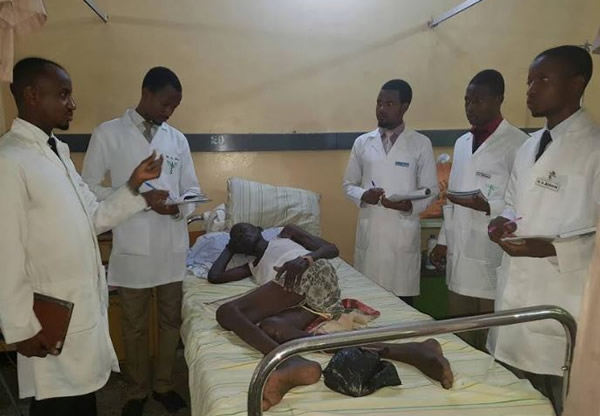
Advertisement
“The union have also been very cooperative and supporting. They did not allow the hospital to close down because they knew the hardship it would cause in view of our peculiar situation,” he said.
Kabir Muhammad, a doctor, said he and his colleagues have combined responsibility of other health personnel to enable people get health services.
Advertisement
“Currently, we are administering blood samples for our patients. We also examined and administered drugs to our sickle cell clients. We cannot close down because some of the patients come for checks every day. So, we have to be on standby to support them,” he said.
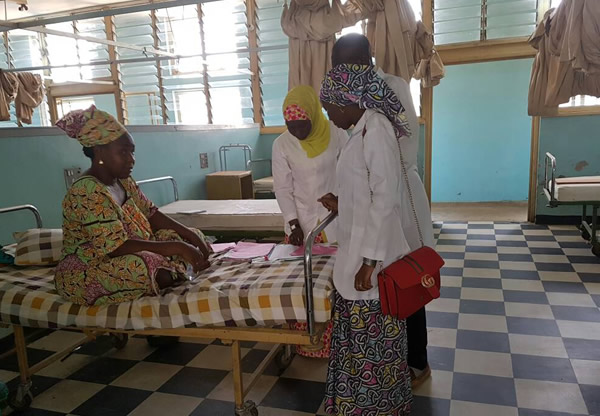
Adamu Sammdi, a patient at the male ward, commended the management of the hospital for paying attention to patients despite the ongoing strike. He said they come to check on them, examine and administer drug on daily basis. “They also provide food for us every day,” he said.
Advertisement
Meanwhile, Ibrahim Ustaz, said it was hard to conduct laboratory test and other examinations as the people in charge were on strike.
KADUNA HEALTH WORKERS NOT AWARE OF JOHESU DIRECTIVES
Health workers in public hospitals in Kaduna, on Thursday, said they were not aware of the directives by JOHESU to join in the ongoing strike.
When TheCable visited General Hospital, Sabon Tasha, Barau Dikko General Hospital and Agwam Awan General Hospital, Kakuri, nurses and laboratory technicians were seen going about with their normal duties. While the nurses attended to patients on admission, outpatients were being treated by doctors.
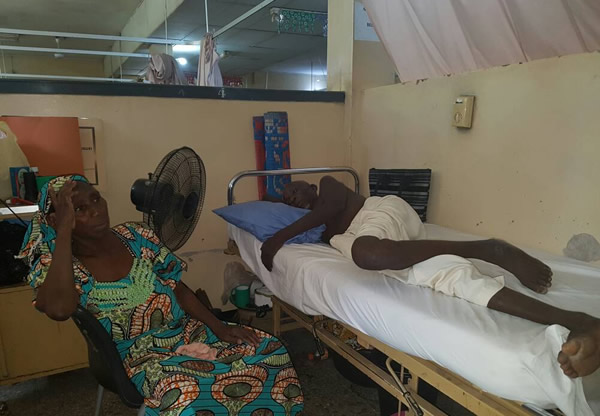
One of the nurses who spoke with TheCable at the General Hospital, Sabon Tasha, said they were not aware of the directives. “Nobody has told us that we should go on strike; we are not aware of such directives,” she said.
Also at the Agwam Awan General Hospital, the premises were bustling with normal activities as nurses were attending to patients. Thomas Bala, a laboratory technician in the hospital, said he was just hearing about the directive.

“I am not aware of the directive,” he quipped. “I am not very sure anybody is aware. That is why you can see everybody at his duty post. If there is anything like that, it will be channelled through our leaders at the state level and we would be told what to do. But for now, we have not been informed about such directives.”
Similarly at the Barau Dikko General Hospital, health workers went about their activities and in-patients and out-patients were attended to at the General Hospital, Sabon Tasha, Kaduna.
ONLY INTENSIVE CARE UNIT HAD DOCTORS AT NATIONAL HOSPITAL, ABUJA
The National Hospital in Abuja has turned to a shadow of its former self. Deserted corridors, locked doors and empty wards spoke volume of the strike. Very few wards had patients being attended to and the medical practitioners on ground were few.
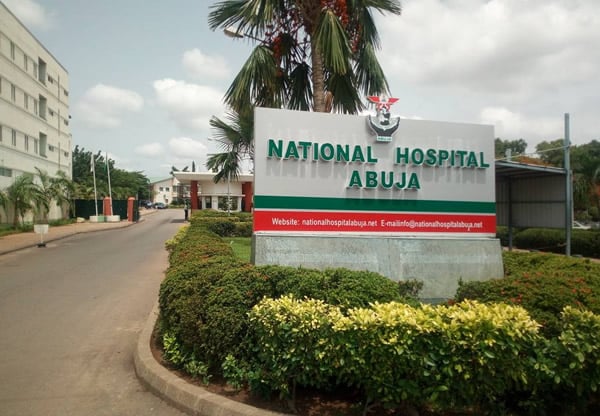
At the medical outpatients ward (MOPD), for instance, 11 patients were seen waiting to be attended to while four doctors were at work. At the radiology unit, only one patient was inside out of about 20 beds – with one doctor available but it was a different tale at the obstetrics and gynaecology theatre block where most of the delivery suits, maternity wards and theatres were under lock.
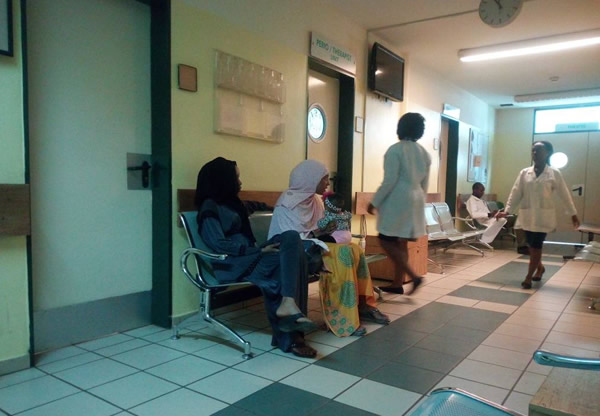
None of the pharmacies visited in the various hospital blocks was open. One of those who had come with a patient lamented the stress of going to buy drugs in a private clinic, which took him almost one hour. “They insisted their pharmacy is not open for service,” she added.
At the trauma center, it was only the intensive care unit that had doctors on ground, while the male ward of the burns unit had eight patients with no doctors in sight. One of the patients, Dayo Temitope, said he had been discharged but the inability to pay kept him at the hospital.
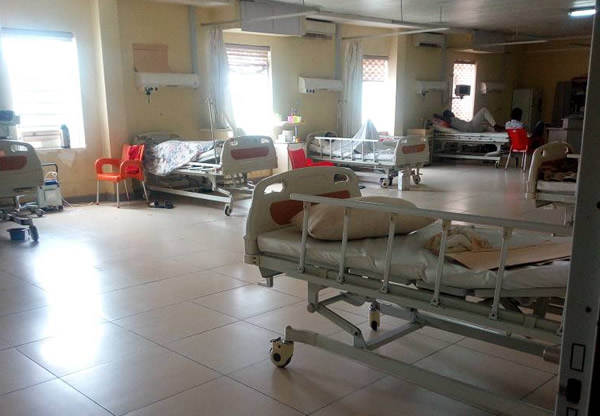
Also, a security operative within the block told TheCable that they have since stopped admitting patients.
However, activities are ongoing like every other day at the Federal Medical Center, Jabi. From the emergency ward to the O/G gynaecology and obstetrics units, nurses as well as doctors were seen attending to patients.
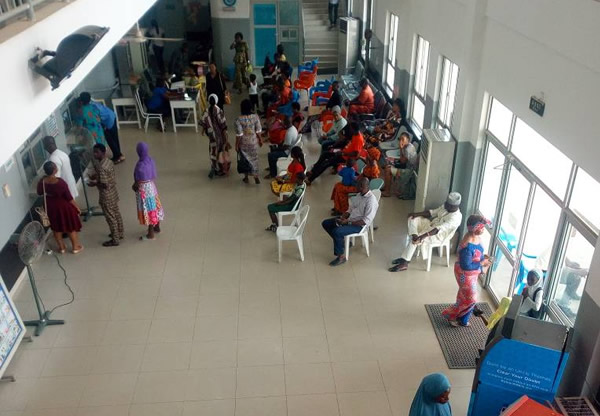
TheCable learnt there is an “in-house arrangement” in place by the hospital management for some wards to address challenges that may arise as a result of the industrial action. Three of the hospital staff who talked to TheCable confirmed that though the strike is being observed in principle at the hospital, arrangements are made for medical professionals both within and from outside to come and attend to patients.
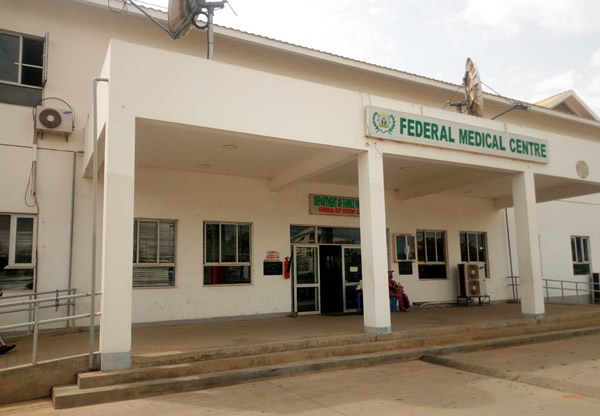
A nurse at the obstetrics unit said: “The nurses are on strike but some do come around from time to time; they are attending to patients. So, if you have a patient, the person can come.”
One of those who had come with a patient at the accident ward talked of a resultant increase in medical fees. The woman who craved anonymity said, “It seems there is an in-house arrangement; their nurses and other professionals are on ground. But the fees are higher than the usual one.”
While there were two patients seen at the emergency unit — with two doctors and a nurse seen walking around – there were 11 patients at the dental clinic with a doctor and a nurse available as at the time of the visit.
A mother spoke of how she had to return home with her kid after they had earlier come for immunisation. “I thought we will be able to do it (immunisation). But when we got here, we were told there was no nurse available and that nobody is on ground to attend to us.”
The University of Abuja Teaching Hospital could be said to be championing the industrial action as almost all the wards are deserted, with only security officers seen walking around the premises.
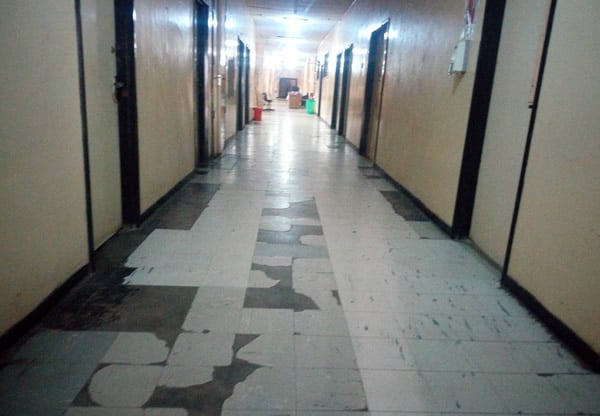
One of the security guards told TheCable that the hospital discharged most of its patients immediately the strike started.
“You know this is a teaching hospital; if there is anywhere the strike will be obeyed to the fullest, it is here. No one has been admitted since then (when the strike commenced),” he added.
PATIENTS, DOCTORS EVICTED AT A HOSPITAL IN DELTA
On Saturday, some JOHESU officials stormed Government Hospital, Eku, Delta state, evicted patients and put the hospital under lock and key. Members of the union, who stormed the hospital in a white bus, on high speed went into the hospital and ordered health workers not to attend to patients. Family members who had come to visit their loved ones watched helplessly after the pleas to the union members fell through.
“It is unthinkable. They locked both doctors and patients outside the hospital without regard for human lives. These are patients who are in critical health conditions. In fact, one of the patients was brought in here last week from Delta State University Teaching Hospital and could not walk. There are some of them here who are homeless. This is unfortunate,” said a witness.
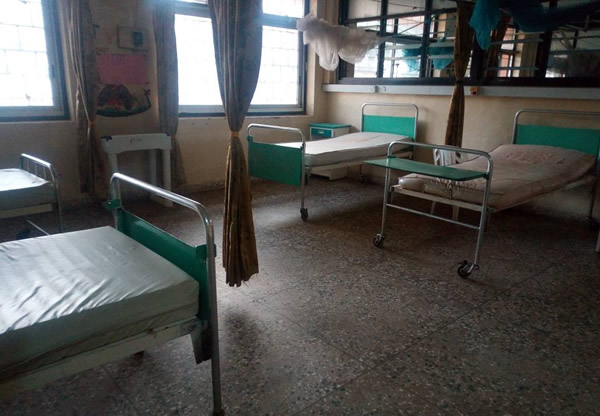
At the Federal Medical Center, Asaba, Victor Osiatuma, the medical director, said the management held a meeting that doctors, members of the National Youth Service Corps (NYSC) and interns should double their efforts during the strike.
A series of meetings between JOHESU and the federal government have ended in deadlock. Last week, Isaac Adewole, minister of health said the demand of the health workers regarding equal salaries with doctors would not be met because “there must be a leader”.
Add a comment

